Oracle PL-SQL Course







Oracle PL/SQL certification course
What will I learn?
- Understand the fundamental concepts of PL/SQL and its architecture.
- Write and execute PL/SQL code blocks.
- Create and manage stored procedures and functions.
- Implement and use packages.
- Develop and manage triggers.
- Handle exceptions in PL/SQL programs.
Requirements
- Proficiency in SQL and familiarity with Oracle databases.
- Basic understanding of programming concepts.
Oracle PL-SQL Course Content
- Introduction to PL/SQL:
- Overview of PL/SQL and its features.
- Advantages of using PL/SQL for database programming.
- Differences between SQL and PL/SQL.
- PL/SQL Basics:
- PL/SQL block structure: DECLARE, BEGIN, EXCEPTION, and END.
- Data types in PL/SQL: VARCHAR2, NUMBER, DATE, BOOLEAN, etc.
- Variables and constants declaration and initialization.
- Conditional statements: IF-THEN-ELSE, CASE.
- Control Structures:
- Looping statements: FOR LOOP, WHILE LOOP, LOOP EXIT, CONTINUE.
- Cursor management: OPEN, FETCH, CLOSE.
- Exception handling: RAISE, EXCEPTION, WHEN OTHERS.
- Stored Procedures:
- Introduction to stored procedures.
- Creating, executing, and dropping stored procedures.
- Passing parameters to stored procedures.
- Calling stored procedures from SQL*Plus and other programming languages.
- Functions:
- Introduction to functions.
- Creating and executing functions.
- Passing parameters to functions.
- Returning values from functions.
- Triggers:
- Introduction to triggers and trigger types: DML triggers, DDL triggers, INSTEAD OF triggers.
- Creating and executing triggers.
- Trigger timing: BEFORE, AFTER, INSTEAD OF.
- Accessing data in triggers: OLD and NEW qualifiers.
- Packages:
- Introduction to packages and package components: procedures, functions, variables, cursors, exceptions.
- Creating and executing packages.
- Managing package state and global variables.
- Advantages of using packages for modular code organization.
- Dynamic SQL:
- Introduction to dynamic SQL and its benefits.
- Using EXECUTE IMMEDIATE and OPEN-FOR statements.
- Preventing SQL injection attacks.
- Bulk processing: FORALL statement, BULK COLLECT.
- Nested blocks and scopes.
- Using collections (arrays, nested tables, associative arrays) in PL/SQL.
- Tuning PL/SQL code for performance.
- Error Handling and Logging:
- Custom error messages and error codes.
- Logging errors to tables or files.
- Implementing exception propagation.
- Security and Privileges:
- Managing PL/SQL security: executing with definer’s rights vs. invoker’s rights.
- Controlling access to objects using privileges and roles.
- Best practices for secure coding in PL/SQL.
- Integration with SQL and Application Development:
- Calling PL/SQL from SQL statements.
- Integrating PL/SQL with Java, .NET, and other programming languages.
- Using PL/SQL in web applications and Oracle Forms.
- Optimization and Debugging:
- Identifying and resolving performance bottlenecks in PL/SQL code.
- Using PL/SQL profiler and trace files for performance analysis.
- Debugging techniques: DBMS_OUTPUT, DBMS_PROFILER, DBMS_DEBUG.
- Advanced Topics:
- Introduction to advanced PL/SQL features like object types, XML processing, and JSON support.
- Working with large objects (LOBs) in PL/SQL.
- Best practices for writing efficient and maintainable PL/SQL code.
- Basic PL/SQL Blocks:
- Write a PL/SQL block to display “Hello, World!” using DBMS_OUTPUT.PUT_LINE.
- Create a PL/SQL block that declares variables for employee_id, employee_name, and salary, and then prints them.
- Control Structures:
- Write a PL/SQL block to check if a given number is even or odd using IF-THEN-ELSE.
- Create a PL/SQL block to calculate the factorial of a given number using a loop.
- Stored Procedures:
- Write a PL/SQL procedure to insert a new employee record into the employee table.
- Create a procedure that accepts an employee ID as input and returns the employee’s name.
- Functions:
- Write a PL/SQL function to calculate the total salary of an employee given their employee ID.
- Create a function that takes a department ID as input and returns the average salary of employees in that department.
- Triggers:
- Write a PL/SQL trigger to log any insertions into the employee table into a separate audit table.
- Create a trigger that automatically updates the last_updated column whenever a record in the employee table is modified.
- Packages:
- Create a PL/SQL package that contains procedures for calculating the total salary and average salary of employees.
- Implement a package that includes a function to retrieve employee details based on their employee ID.
- Dynamic SQL:
- Write a PL/SQL block that dynamically generates and executes a SELECT statement based on user input.
- Create a dynamic SQL statement to insert a record into a table based on user-provided values.
- Error Handling:
- Implement error handling in a PL/SQL block to catch and handle any division by zero errors.
- Write a PL/SQL block that handles exceptions for invalid employee IDs when retrieving employee details.
- Advanced Topics:
- Develop a PL/SQL block that uses collections (e.g., arrays, nested tables) to store and manipulate data.
- Create a PL/SQL block that interacts with XML data, parsing and extracting information from XML documents.
- Integration with SQL:
- Write a PL/SQL block that includes SQL statements to perform CRUD operations on database tables.
- Develop a PL/SQL block that calls a stored procedure and processes the results returned by it.
Get in touch
400+ Global Employment Partners








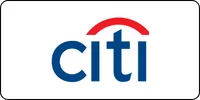




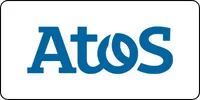

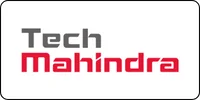



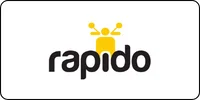



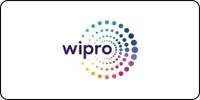







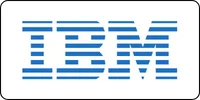

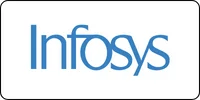

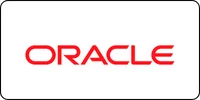
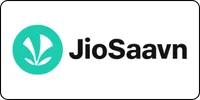


Why Choose Oracle PL-SQL Certification Course from Bright Computer Education?

Designed Curriculum
Our curriculum covers everything from basic to advanced topics. Topics include variables, data types, control structures, functions, OOP, STL, and more.

Hands-on Learning
Dive into practical exercises and coding projects that reinforce learning and help you build real-world applications.

Experienced Instructors
Learn from industry experts with years of experience in C programming and software development.
Flexible Learning
Choose from flexible scheduling options, including self-paced learning or live virtual classes to fit your busy lifestyle.
Career Development
Gain valuable skills sought after by employers in various industries, from software development to embedded systems and beyond.
Interactive Learning
Engage with fellow learners and instructors through live Q&A sessions, discussion forums, and collaborative coding exercises.
Diverse Career Opportunities in Oracle PL-SQL: Exploring Paths in India's Technology Sector
Frequently Asked Questions
Recently View Courses
Course Details Curriculum Placement FAQ’s Data Analytics using Excel certification course The Data Analytics...
Read MoreCourse Details Curriculum Placement FAQ’s Data Analytics using SAS certification course The Data Analytics...
Read MoreCourse Details Curriculum Placement FAQ’s Data Analytics using R certification course The Data Analytics...
Read More
